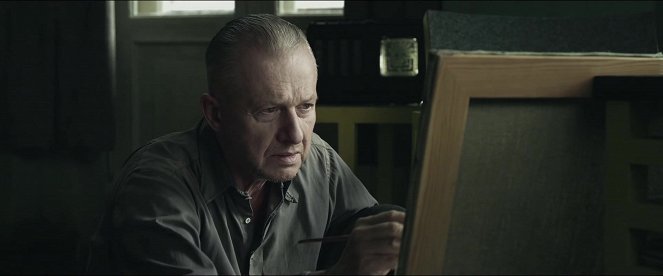Rendező:
Andrzej WajdaForgatókönyvíró:
Andrzej MularczykOperatőr:
Pawel EdelmanSzereplők:
Boguslaw Linda, Aleksandra Justa, Zofia Wichlacz, Krzysztof Pieczynski, Szymon Bobrowski, Mariusz Bonaszewski, Maria Semotiuk (több)Tartalmak(1)
A film Wladyslaw Strzeminskinek, a 20. század egyik legkiemelkedőbb lengyel avantgárd festőjének állít emléket, aki nemcsak művészként, hanem tanárként is kiemelkedő eredményeket ért el. Strzeminski élete a Lengyel Népköztársaság megalakulása után vett hirtelen fordulatot, hiszen a mozgássérült festő a legnehezebb pillanatokban sem volt hajlandó meghajolni a párt akarata előtt. Életét ellehetetlenítették, egyedül diákjai álltak ki mellette az utolsó pillanatig, valamint egyetlen lánya, Nika, aki félárva lett édesanyja halála után. Strzeminski élete utolsó pillanatáig festett és dolgozott A látás elmélete című könyvén, miközben a nyomor egyre elviselhetetlenebbé vált számára. (Vertigo Média)
(több)Recenziók (2)
Hat's off to his! Afterimage is more than just a dignified farewell to the incredibly long, prolific, and successful creative career of the most significant Polish filmmaker Andrzej Wajda. The majority of his colleagues are unable to come close to what he managed to shoot at the age of 90 throughout their entire body of work. His last film belongs to the best he has ever made, even though it is apparent that at this age he no longer experimented and conservatively relied on what he knew. However, each shot reveals a filmmaker with a clear idea of what he wants and how to achieve it, capable of working with the language of film and, above all, capable of telling a story and conveying information about his characters through images. Wajda chose a subject that allowed him to present a strong, extraordinary personality of Polish history and at the same time confront, through this subject, the fact that he himself had dealt with the regime a bit in his youth. Unlike his protagonist, he did not confront the system, even though from the beginning he surpassed the local conditions and time. Wajda's portrayal of the 1940s and 1950s, when Stalinism gained maximum influence in Central Europe, is suggestive, perhaps also because he personally experienced that era. Poland from that time is portrayed by Wajda as inhospitable, full of oppressive atmosphere, with no place for optimism, only occasionally surviving defiance and islands of human solidarity. A separate chapter is the performance of Boguslaw Linda in the lead role. He delivered such a fantastic performance that you really feel like he actually had his limbs amputated for the sake of the role. I give it a solid 4 stars, knowing that I will still think a lot about whether to give Wajda the fifth star for his lifelong merits. He deserves it. Overall impression: 85%.
()
This biographical movie about the avant-garde Polish painter Wladyslaw Strzeminski only reinforced my belief in the importance of the Communists being removed from power in the Eastern Bloc countries more than thirty years ago. However, their domination still managed to cause devastating damage. The total destruction of the individual and his personality, and consequently of society as a whole, which Andrzej Wajda's movie highlights, is truly chilling. (75%)
()

